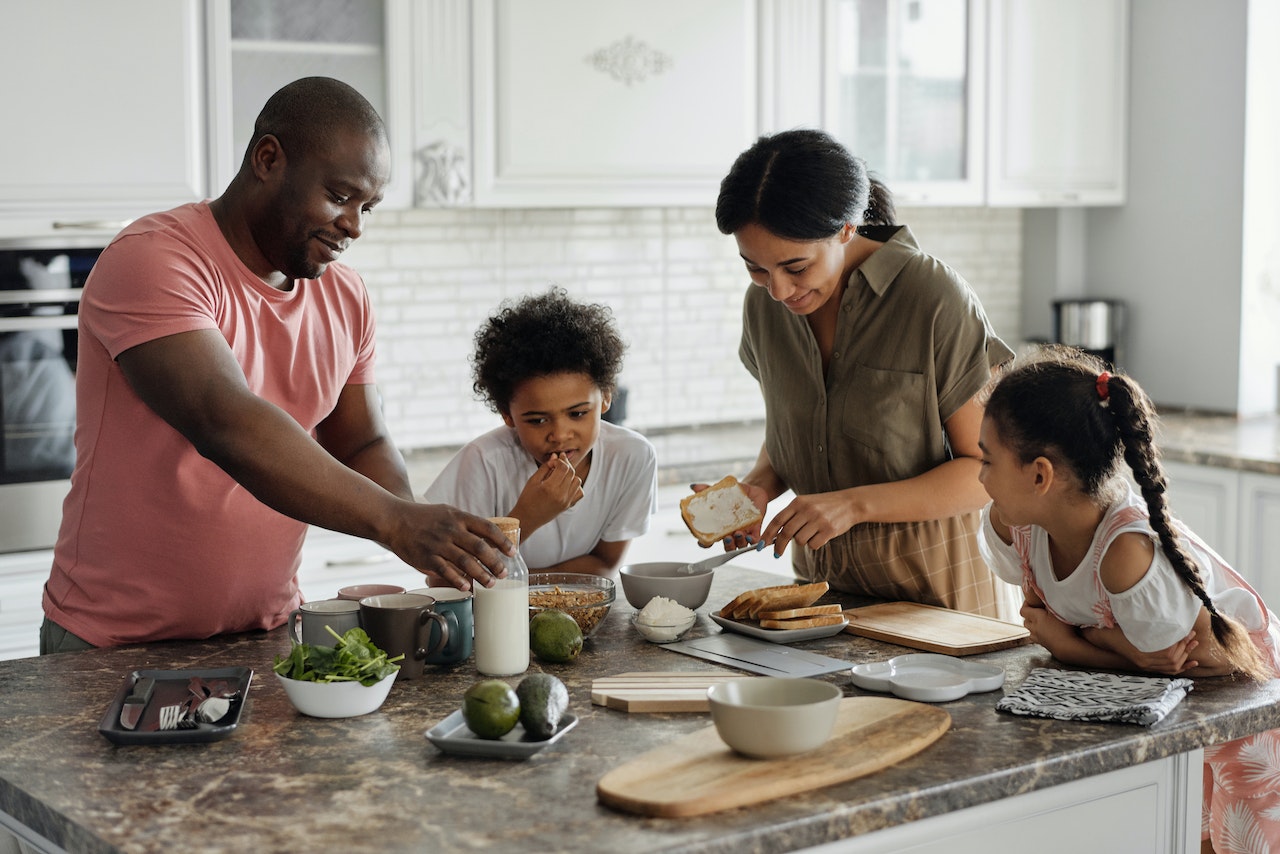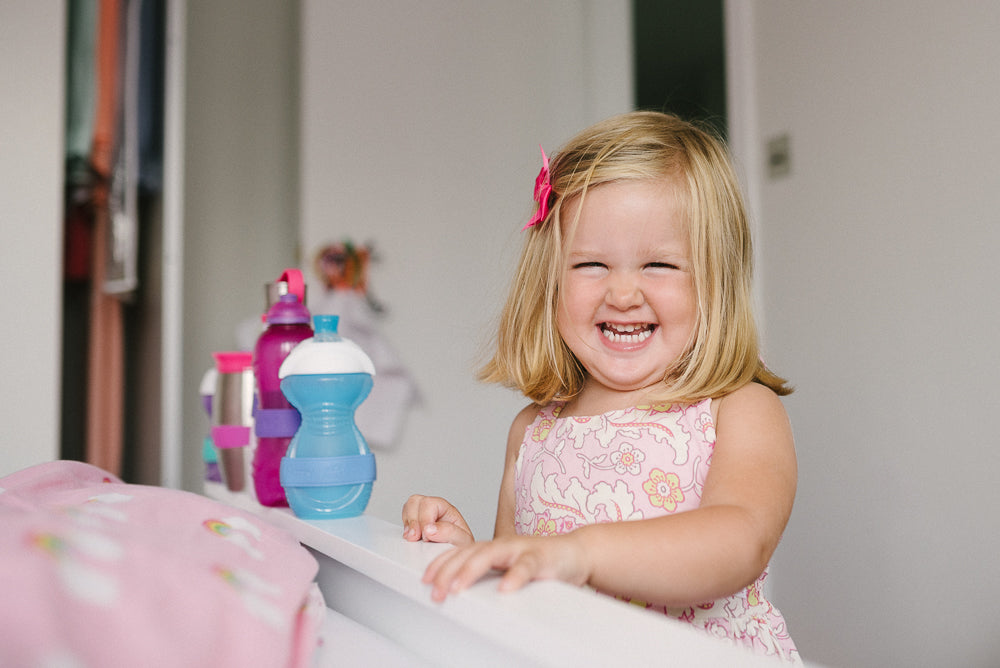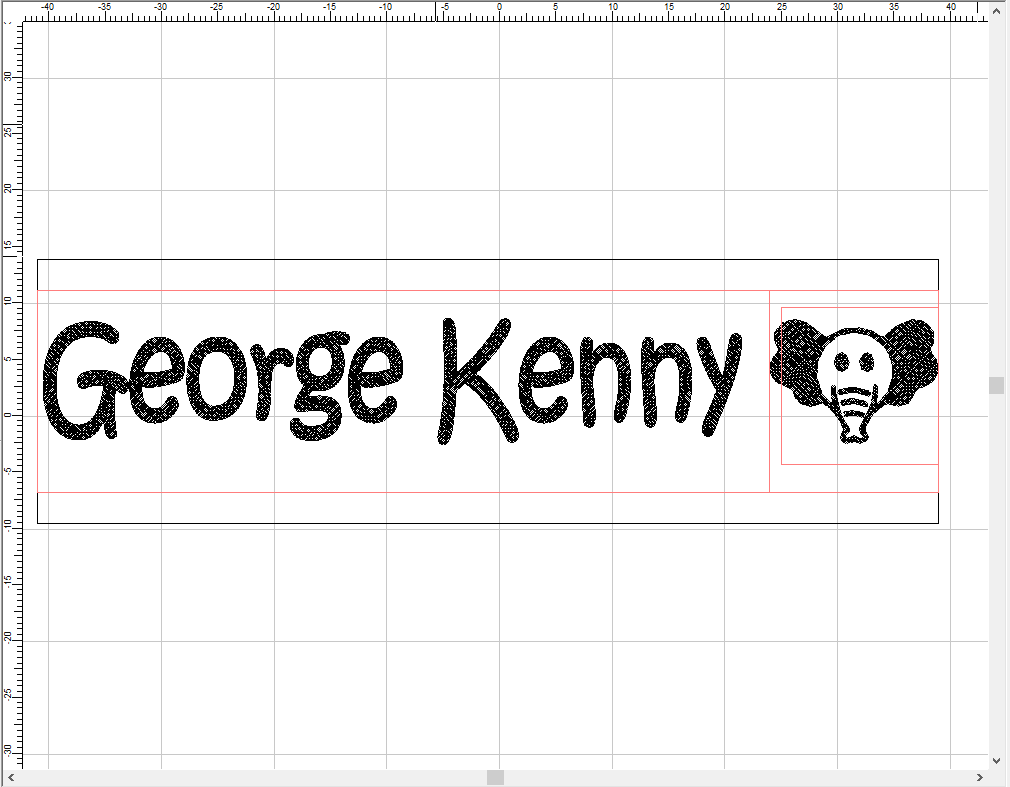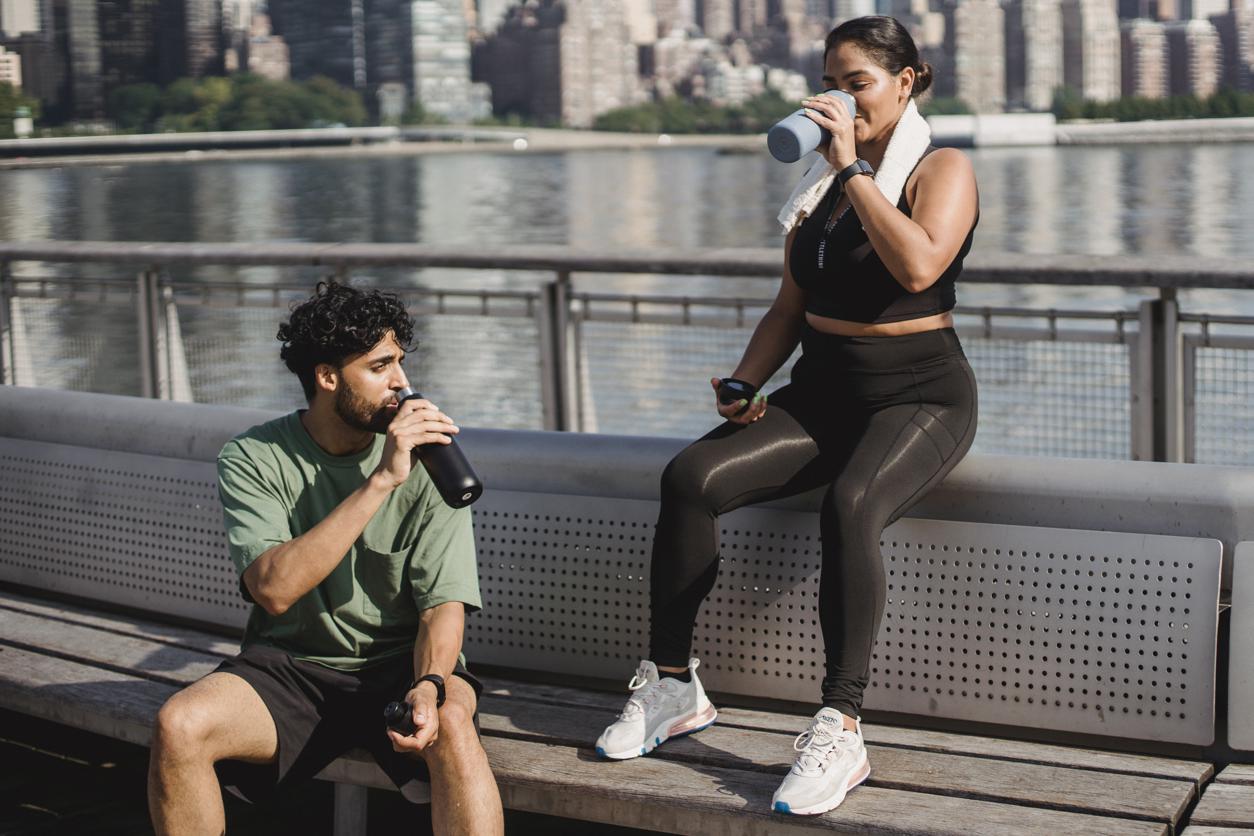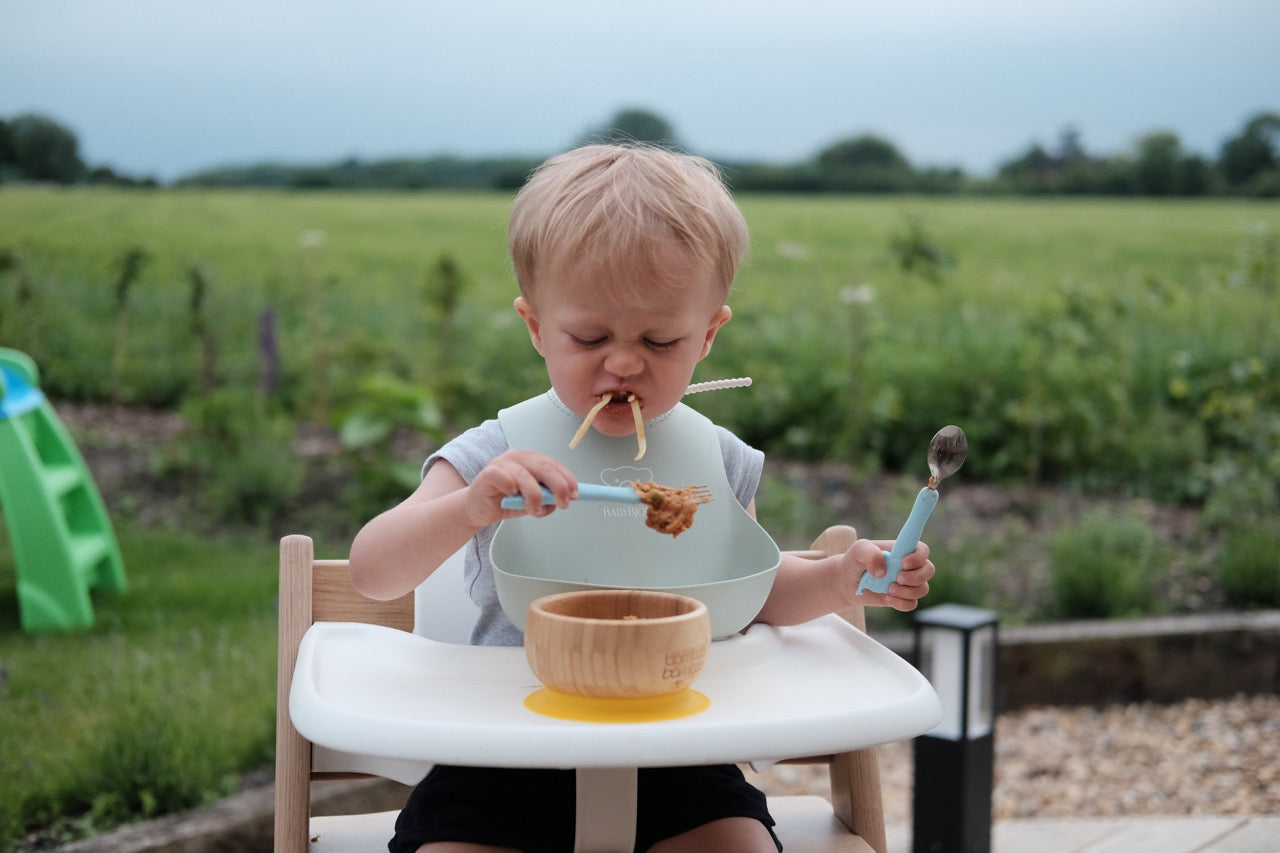At minaym we’re passionate about making our products as eco friendly as we can. Silicone and stainless steel, our two main materials, have great planet friendly profiles, both being naturally sourced materials - and you can return used minaym items to us for specialist recycling. Being planet kind was one of our big concerns when sourcing material for our first, flagship product, Personalised Bottle Bands.
Quite apart from the products you choose for your toddler to eat from, have you thought about trying to make the food that your young family eats as sustainable as possible? Have you considered how you might do this?
It’s always better all round for your toddler to eat the same as the rest of the family, so let’s have a look at simple ways in which you can make your family’s menus more sustainable for the environment.
Eat less meat!
Top of the list is to eat less meat! Plenty of us now don’t eat meat at all - vegan/vegetarian eating for toddlers is for another blog! - but for those of us who do, it’s important for health and environmental reasons to cut down on the meat we do eat.

The reasons for this are numerous:
- Keeping cattle is a major contributor of GHD greenhouse gasses.
- Cattle often require large amounts of land for grazing.
- Cattle need considerable amounts of water.
If regular meat eaters cut down on the number of times per week that they ate meat it could make a considerable difference to the total amount of meat consumed - which would mean a reduction in the amount of meat needed. If this reduction in demand was consistent over time, meat production would also reduce - which would mean fewer GHD greenhouse gasses!
Reduce the amount of processed foods you and your family eat!
Processing foods requires energy, which is a drain on the world’s natural resources - more energy than is used in the production of crops, fruit and vegetables. Unprocessed food is not only better for you and your family, it’s also definitely preferable environmentally.

If you do eat meat try to make it organic and locally produced. Maybe make it an occasional treat rather than an everyday family food.
Waste less food!
Food wastage means that the energy used in the production of that food is also wasted - plus of course any packaging that that food comes in. A big waste of energy and resources as well as money down the drain!
Increase the amount of seasonal and locally grown fruit and vegetables you give to your toddler and family!
Eating fruit and vegetables that are locally grown not only supports your local economy, but it means the journey your food takes to the shop - or even to your door - is minimised. Less fuel used to get the food to you, less pollution incurred.
It’s also important to try and eat seasonal fruit and veg - look for locally produced pears and apples in late summer and autumn; in summer, locally grown salad items such as tomatoes and lettuce, berry fruits from the UK rather than overseas for example.

Field grown vegetables are more sustainable as they require less watering - think UK potatoes and carrots, cabbage, sweetcorn and other field grown vegetables.
There is so much you can do with seasonal produce, and actually it will make your family’s menus more varied if you do eat seasonally. Something to look forward to when strawberries come into season rather than having foreign imports at hand all year round! Our personalised silicone snack pots are perfect for those locally grown strawberries!
Fish - try to eat from sustainable stocks.
Certain types of fish have been overfished and also can often have travelled around the world to get to your family’s plates, so try to pick fish that is caught more locally if possible. It’s also better to choose fish that has been caught using the pole and line method rather than fish that has been trawled - fish often says this on the pack or tin. Catching in trawling nets means that a lot of fish are caught at a time and increases the likelihood of overfishing.
Try to vary the types of fish you eat if possible - not just sticking to the few you are used to - like salmon and cod. If everyone ate a more varied selection of fish this would mean that there wouldn’t be so much pressure on certain fish stocks.
The five most popular seafood catches in the UK - and therefore the ones with the most pressure on stocks - are salmon, cod, haddock, prawns and tuna.

You can help make these more sustainable by buying line caught products (as mentioned above), line caught tuna or mackerel for example - or try alternatives like Cornish hake, Dover sole, Cornish sardines or British seafood. Pacific salmon is preferable to farmed salmon too as salmon farming is an intensive method of food production.
Why not try some hake made into a fish pie for your toddler? Don’t forget to pop a minaym personalised silicone bib on your little one before they eat it!
Try to buy and store foods in a sustainable way
The way we travel to get our food is important. Do you make a special trip to buy your shopping or can you do it as part of another essential journey? How often do you drive the car out to shop? Can you plan menus better so you don’t have to take the car to the shops as often? Can you get shopping delivered instead? Delivery vans can carry shopping to lots of customers in one trip.
The way you store foods is also important as it gives them longevity. Store your fruit and vegetables in a cool place, keep dried items such as pasta and rice in containers. In some shops you can even fill your own containers with dried items so you don’t have any wastage on packaging.
Look at the packaging on your family’s food and try to avoid single use plastics as much as possible.
Look at what you cook!
Base your family’s meals and snacks on locally grown starches such as potatoes and bread.
Make good use of beans and lentils as these are sustainable foods and can be used in many delicious family dishes. Try a vegetable and bean chilli or a chickpea curry……your toddler will learn to love legumes if you make them interesting. There are lots of great recipes online and in books that will help you make the most of these great foods.

Lentils make great toddler foods too - try a lentil dhal with rice that your toddler can eat with our personalised toddler cutlery - ideal for independent eating!
If you talk to your toddler about why you need to try and eat more sustainably, they will take it on board and hopefully eventually will become more environmentally aware young people. This is important for the future!
Look at how you cook!
The microwave is actually quite energy efficient - the hob uses 2-3 times the energy of the microwave and the oven 3-4 times. If you’re cooking on the hob try to do ‘one pot’ type dishes - a stir fry for example where all the ingredients for the meal are in one pan. If you’re using the oven try to cook several things in it at one time to maximise the oven space used. You could bake a home made cake at the same time as a vegetable and bean casserole, for example.
Try to use less water for cooking, steam other veg over the pan if possible, and boil the kettle less!
Some of the more traditional ways of cooking - a Sunday roast with lots of pans on the hob and the cooker on for hours - are not very environmentally friendly! Look for recipes that minimise the energy you need to use.
At minaym we pack our products in minimal, recyclable packaging to try and reduce negative environmental impact as much as we possibly can. We’ve got some great products that will help your toddler eat independently and enjoy family meals - take a look at our personalised silicone drinking cups, personalised toddler cutlery and silicone toddler snack pots.
You’ll find lots of products to help your toddler enjoy their sustainable food in our shop. Why not take a look and remember that a few small steps towards more sustainable eating can lead to big differences in environmental impact if everyone makes an effort!
You can also check out our feeding a toddler blog to learn more and get more tips!
Bibliography:
First Steps Nutrition https://www.firststepsnutrition.org
Sustainable Food Trust https://sustainablefoodtrust.org/news-views/sustainable-seafood-uk/


